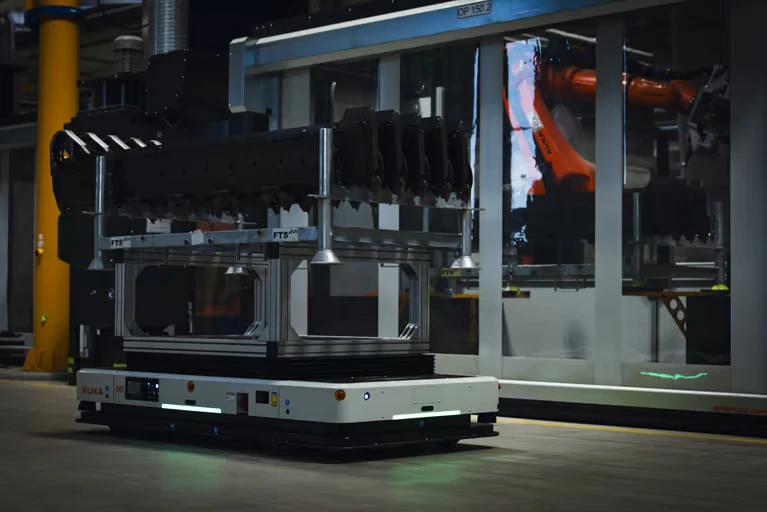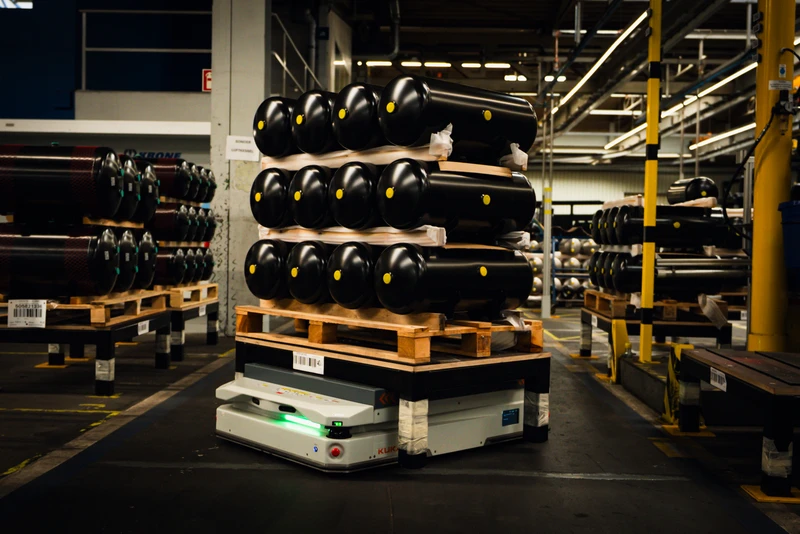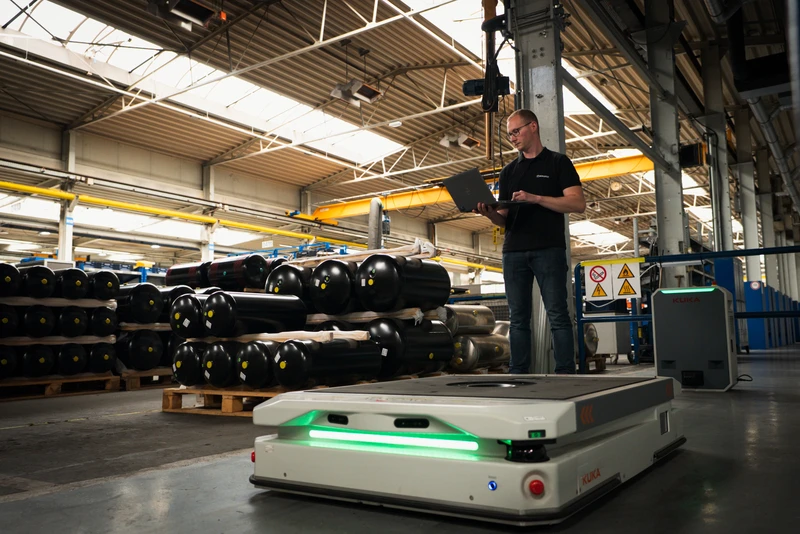In collaboration with KUKA, KRONE, a leading manufacturer of agricultural machinery and commercial vehicles, is advancing intelligent automation at its established Werlte facility in Germany and at a new smart production site operated by KRONE subsidiary GTS in Ibbenbüren. Here, handling and welding robots work seamlessly alongside autonomous mobile robots (AMRs) to optimize production processes.
Flexibility in Inventory: Automation at Werlte

In Werlte’s truck trailer production, six-axis KUKA handling and welding robots operate in a digitally connected network alongside autonomous mobile robots (AMRs) like the KMP 1500P. Existing processes were first evaluated and then adapted to new workflows, including modular construction methods.
The welding robots are supplied fully autonomously, with forklifts being phased out of production wherever possible. Instead, transport platforms automatically deliver components such as compressed air tanks or door elements directly to the cell. There, a handling robot positions them into the welding system, while finished assemblies are also removed automatically. This streamlined approach boosts efficiency in both production and intralogistics while freeing employees from heavy, repetitive tasks.
Volker Perk, Production Director at KRONE Commercial Vehicle Group, views robotics as essential for safeguarding the company’s long-term presence in Germany:
"We want to continue manufacturing truck trailers like the ‘Profi Liner’ here in Germany. However, we must automate, as skilled workers are increasingly difficult to find. Robotics gives us the opportunity to shift our employees toward more efficient and value-adding tasks."
Connected and Digital: The Ibbenbüren Smart Factory
While Werlte focuses on modernizing established processes, KRONE has built an entirely new agricultural machinery factory in Ibbenbüren, Westphalia, completed in just twelve months on a greenfield site. With support from KUKA, the facility was designed around cutting-edge, smart, and sustainable production concepts.
Every machine, robot, and transport vehicle in the Smart Factory is digitally interconnected, enabling immediate responses to tolerance deviations or malfunctions. The systems are adaptable, self-learning, and capable of autonomous corrections.
In one production cell, nine welding and handling robots work in sync with two machining centers and an automated measuring unit. This has nearly eliminated downtime and allows output to be scaled up or down with flexibility. The factory is also testing its first heavy-duty AMRs, including the KMP 3000P, which can transport up to three tons—double when paired—moving with omnidirectional precision even in tight spaces.
“We Make Work More Attractive”
For KRONE’s factory planners, automation is not about replacing human labor but enhancing it. Internal employees are actively applying for new roles, drawn by the improved ergonomics and modern work environment. “The new workplaces are safer and less physically demanding. That makes them especially attractive to younger generations,” adds Perk.

